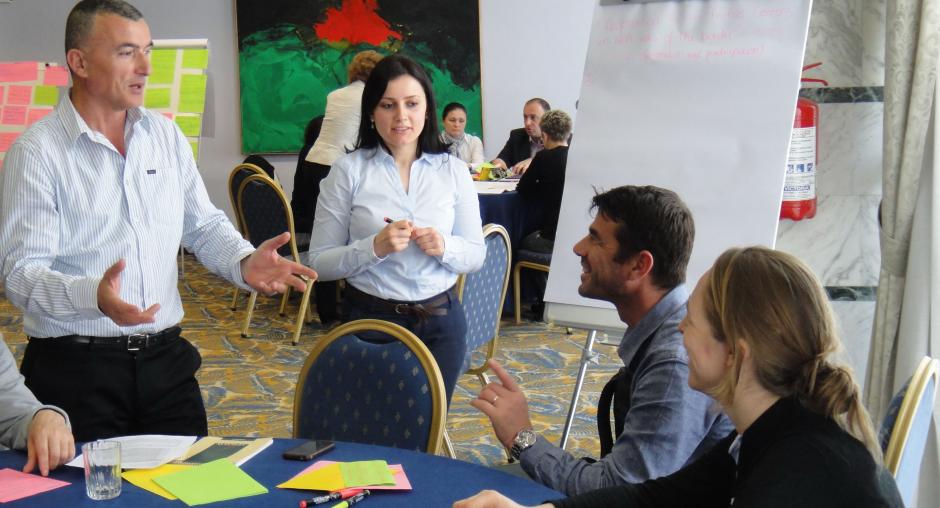OSCE-supported Aarhus Centres discuss their role in trans-boundary water management in South-East Europe

TIRANA, 26 March 2015 – More than 40 representatives of central and local governments, Aarhus Centres and civil society from Albania, Bosnia and Herzegovina, Montenegro and Serbia discussed the challenges of public participation in trans-boundary water management and in trans-boundary Environmental Impact Assessment (EIA) processes at a two-day regional roundtable organized by the OSCE, that ended today.
Participants learnt about the main features and public participation procedures of the UNECE Helsinki Convention on the Protection and Use of Trans-boundary Watercourses and International Lakes, and the UNECE Espoo Convention on Trans-boundary Environmental Assessment in Trans-boundary Context.
The roundtable discussions, which were organized by the Office of the Co-ordinator of OSCE Economic and Environmental Activities (OCEEA) and the OSCE Presence in Albania, generated a set of practical recommendations for the Aarhus Centres to foster public participation in trans-boundary water management and EIA processes in the South Eastern Europe region. It also provided the opportunity for networking among Aarhus Centres and the exchange of information and experiences.
“Water is a vital link between the people, communities and countries that are sharing it,” said Robert Wilton, Deputy Head of the OSCE Presence in Albania. “Well-governed water resources are essential to maintaining public health and a sound environment, as well as to foster stability.” He stressed the need for an inclusive approach in managing trans-boundary water resources.
Jenniver Sehring, Environmental Affairs Adviser at OCEEA, emphasized the importance of public participation in order to achieve the effective management of trans-boundary water bodies and the potential role of the Aarhus Centres in this regard.
The OSCE currently supports a network of 57 Aarhus Centres in 14 countries, including 13 Aarhus Centres in South-East Europe. They serve as a link between the Government and non-governmental organizations, providing a platform for coalition-building and partnership among NGOs in addressing environmental issues.
This event is supported by the Austrian Development Cooperation as part of the Environment and Security (ENVSEC) Initiative - a partnership comprising the OSCE, UN Development Programme (UNDP), the UN Environment Programme (UNEP), the UN Economic Commission for Europe (UNECE), the Regional Environmental Centre for Central and Eastern Europe as well as NATO as an associate partner.
